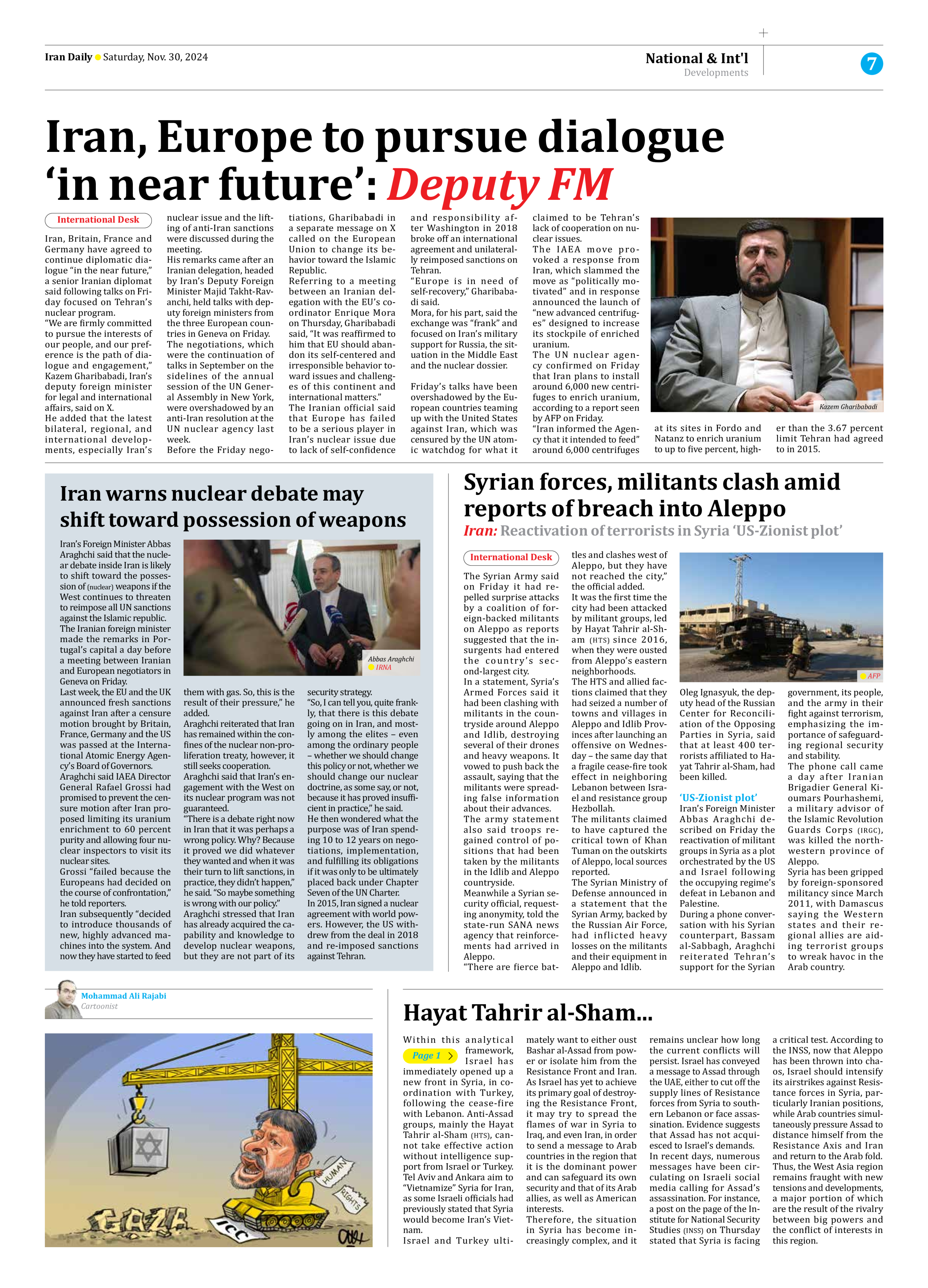
Hayat Tahrir al-Sham...
Page 1
Within this analytical framework, Israel has immediately opened up a new front in Syria, in coordination with Turkey, following the cease-fire with Lebanon. Anti-Assad groups, mainly the Hayat Tahrir al-Sham (HTS), cannot take effective action without intelligence support from Israel or Turkey. Tel Aviv and Ankara aim to “Vietnamize” Syria for Iran, as some Israeli officials had previously stated that Syria would become Iran’s Vietnam.
Israel and Turkey ultimately want to either oust Bashar al-Assad from power or isolate him from the Resistance Front and Iran. As Israel has yet to achieve its primary goal of destroying the Resistance Front, it may try to spread the flames of war in Syria to Iraq, and even Iran, in order to send a message to Arab countries in the region that it is the dominant power and can safeguard its own security and that of its Arab allies, as well as American interests.
Therefore, the situation in Syria has become increasingly complex, and it remains unclear how long the current conflicts will persist. Israel has conveyed a message to Assad through the UAE, either to cut off the supply lines of Resistance forces from Syria to southern Lebanon or face assassination. Evidence suggests that Assad has not acquiesced to Israel’s demands.
In recent days, numerous messages have been circulating on Israeli social media calling for Assad’s assassination. For instance, a post on the page of the Institute for National Security Studies (INSS) on Thursday stated that Syria is facing a critical test. According to the INSS, now that Aleppo has been thrown into chaos, Israel should intensify its airstrikes against Resistance forces in Syria, particularly Iranian positions, while Arab countries simultaneously pressure Assad to distance himself from the Resistance Axis and Iran and return to the Arab fold.
Thus, the West Asia region remains fraught with new tensions and developments, a major portion of which are the result of the rivalry between big powers and the conflict of interests in this region.







